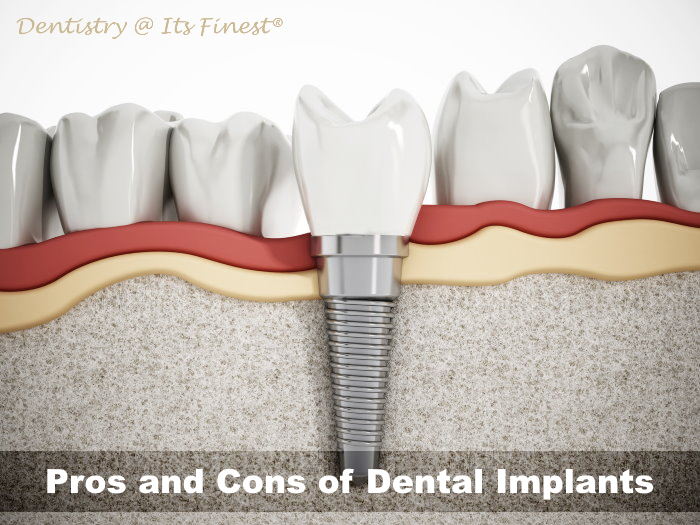Introduction
Dental implants have become a popular solution for individuals who have lost one or more teeth. They offer a long-lasting and natural-looking alternative to dentures or bridges. If you are considering dental implants, it’s important to understand the process from consultation to aftercare. This blog post will guide you through the various stages involved in getting dental implants, ensuring you have all the information you need to make an informed decision.
Understanding Dental Implants
Dental implants are artificial tooth roots that are surgically placed into the jawbone to support a replacement tooth or bridge. They provide a strong foundation for fixed or removable replacement teeth and are designed to look and function like natural teeth.
The Consultation Process
Before getting dental implants, it is important to schedule a consultation with a qualified dentist or oral surgeon. During this consultation, the dentist will evaluate your oral health, take X-rays, and discuss your treatment options. They will also address any concerns or questions you may have.
Assessing Oral Health
The dentist will examine your mouth, teeth, and gums to determine if you are a suitable candidate for dental implants. They will check for any signs of gum disease, tooth decay, or bone loss that may affect the success of the implant procedure.
Taking X-rays
X-rays are essential for assessing the condition of your jawbone and determining the optimal placement of the dental implants. These images help the dentist identify any potential complications and plan the treatment accordingly.
Treatment Options
Based on the evaluation and X-ray results, the dentist will discuss the different treatment options available to you. They will explain the benefits and potential risks of each option, helping you make an informed decision about your dental implant procedure.
The Implant Procedure
Once you have decided to proceed with dental implants, the actual implant procedure will be scheduled. This typically involves several stages:
Preparing the Jawbone
If your jawbone lacks the necessary density to support an implant, a bone graft may be required. This involves adding bone material to the jawbone to strengthen it and create a stable foundation for the implant.
Placing the Implant
During the implant placement procedure, the dentist will make an incision in the gum to expose the jawbone. They will then drill a small hole and carefully insert the implant into the bone.
Summary
Dental implants are a reliable and aesthetically pleasing solution for replacing missing teeth. This blog post provides a comprehensive overview of the entire dental implant process, starting from the initial consultation to the aftercare required post-surgery.
The introduction highlights the rising popularity of dental implants and their advantages over other tooth replacement options. It emphasizes the importance of understanding the entire process to make an informed decision.
The summary reiterates the benefits of web dental implants and mentions that the blog post covers all the stages involved, ensuring readers have a complete understanding of what to expect.
- Q: What are dental implants?
- A: Dental implants are artificial tooth roots that are placed into the jawbone to support a replacement tooth or bridge.
- Q: How long does the dental implant procedure take?
- A: The duration of the dental implant procedure can vary depending on the individual case, but it typically takes several months to complete.
- Q: Are dental implants painful?
- A: The dental implant procedure is usually performed under local anesthesia, so you won’t feel any pain during the surgery. Some discomfort and swelling may occur after the procedure, but it can be managed with pain medication.
- Q: How long do dental implants last?
- A: With proper care and maintenance, dental implants can last a lifetime. They are designed to be a long-term solution for missing teeth.
- Q: Can anyone get dental implants?
- A: Not everyone is a suitable candidate for dental implants. A consultation with a dentist or oral surgeon is necessary to determine if you have enough bone density and healthy gums to support the implants.
- Q: How do I take care of dental implants?
- A: Taking care of dental implants is similar to taking care of natural teeth. Regular brushing, flossing, and dental check-ups are essential to maintain the health of your implants and surrounding gums.
- Q: Are there any risks or complications associated with dental implants?
- A: Like any surgical procedure, dental implant placement carries some risks, such as infection, nerve damage, or implant failure. However, these complications are rare, and the success rate of dental implants is generally high.
- Q: Can dental implants be done in a single day?
- A: In some cases, dental implants can be placed and restored with temporary crowns or bridges in a single day. This technique is known as “immediate loading” or “same-day implants.” However, not all patients are suitable candidates for this approach.
- Q: Will dental insurance cover the cost of dental implants?
- A: Dental insurance coverage for dental implants varies

Welcome to my website! My name is Ben Stout, and I am a dedicated and passionate Dental Hygienist with years of experience in the field. I am thrilled to share my knowledge and expertise with you through this platform.
As a Dental Hygienist, my primary goal is to ensure optimal oral health for my patients. I firmly believe that a healthy smile is not only aesthetically pleasing but also crucial for overall well-being.



